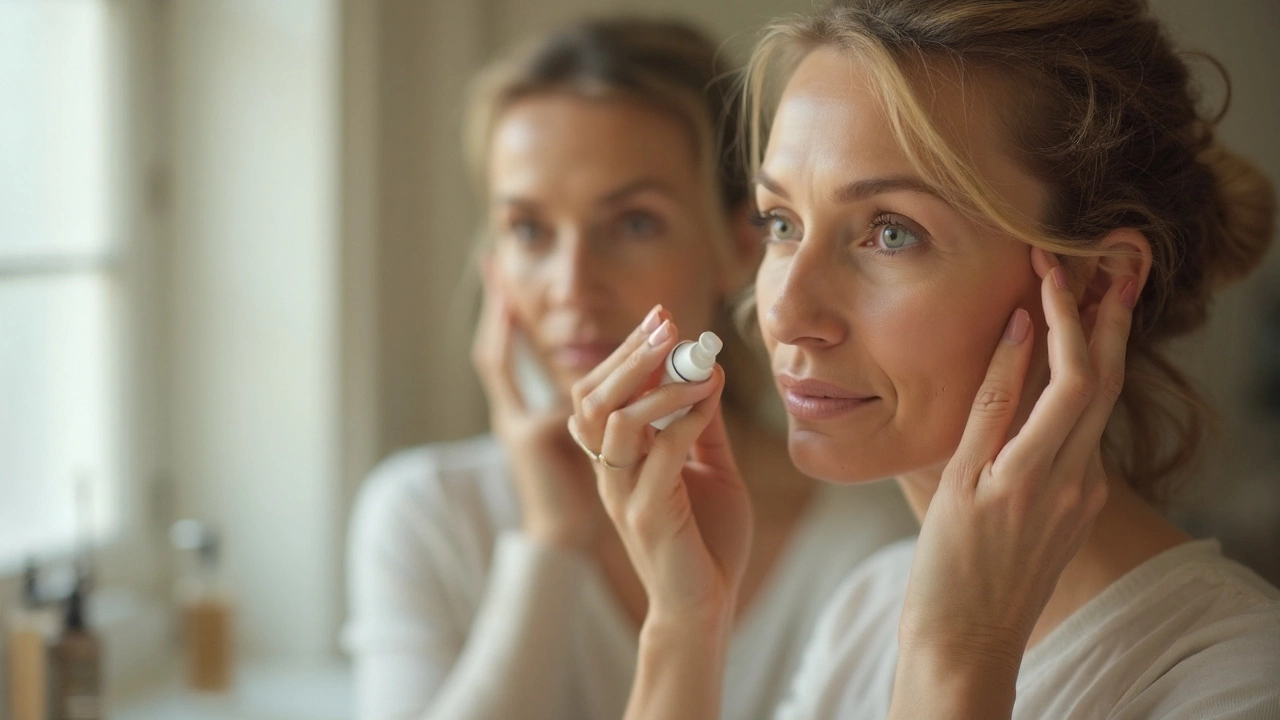Retinoids: The Ultimate Guide to Skincare Powerhouses
When working with retinoids, derivatives of vitamin A that speed up skin renewal and tackle signs of aging and breakouts. Also known as vitamin A derivatives, they are a staple in modern skincare.
Retinoids enhance skin cell turnover, meaning they push old, dull cells out and bring fresh, brighter cells to the surface. This process reduces acne by keeping pores clear and stimulates collagen to smooth fine lines. In short, retinoids link three key goals: clearer skin, smoother texture, and a more youthful look. That’s why dermatologists often recommend them alongside gentle cleansers and moisturizers.
How Retinoids Interact with Common Skin Concerns
One of the most frequent companions of retinoids is acne, a common skin condition that appears as pimples, blackheads, or cysts. By increasing the rate at which skin cells shed, retinoids prevent the buildup that clogs pores, making breakouts less likely. Studies show that a nightly low‑dose retinoid can cut acne lesions by up to 50% within a few weeks.
Another big player is anti‑aging, the goal of minimizing wrinkles, fine lines, and age spots care. Retinoids boost collagen production, improve elasticity, and even out pigment. The result is smoother, firmer skin over time. For people who want to tackle multiple concerns, retinoids serve as a single, efficient tool.
Beyond acne and anti‑aging, retinoids also affect skin cell turnover, the cyclical process where old skin cells are replaced by new ones. Faster turnover means a quicker fade of hyperpigmentation and a healthier barrier. This is why many clinicians pair retinoids with hydrating serums – the increased renewal can make skin more receptive to other actives.
Choosing the right retinoid depends on concentration, formulation, and your skin’s tolerance. Over‑the‑counter options like retinol sit at the low end, while prescription‑strength tretinoin or adapalene sit higher. Start slow: a pea‑size amount every third night, then gradually increase frequency as your skin adapts. If you notice redness or peeling, back off and add a moisturizer to calm the barrier.
Safety matters, too. Because retinoids make skin more photosensitive, daily sunscreen with at least SPF 30 is non‑negotiable. Pregnant or nursing people should avoid oral retinoids and stick to milder, pregnancy‑safe options. Always patch‑test a new product and consult a dermatologist if you have severe eczema or rosacea.
Putting it all together, retinoids sit at the crossroads of three major skincare goals: clearing acne, slowing visible aging, and boosting overall skin health through faster cell turnover. Whether you’re a teen battling breakouts or someone in their 40s looking to smooth wrinkles, there’s likely a retinoid that fits your routine. Below you’ll find a curated list of articles that dive deeper into each of these angles, share real‑world tips, and help you make the most of this versatile ingredient.

Dermatologist-Approved Solutions for Wrinkles: Best Products, Treatments & Habits
Get real advice on what dermatologists actually recommend for wrinkles: from science-backed ingredients to lifestyle tweaks and the truth about trending treatments.
© 2026. All rights reserved.